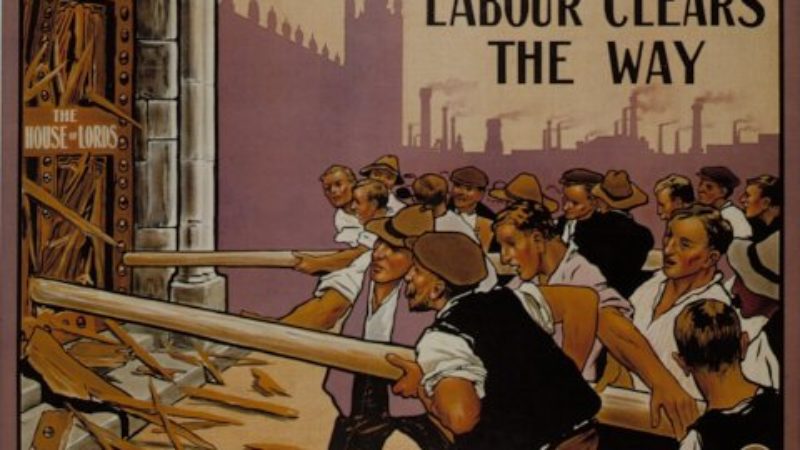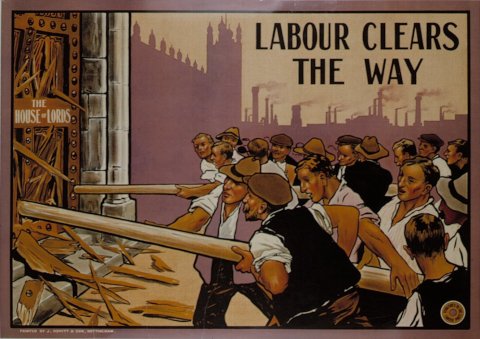

Ed Miliband’s announcement of plans to replace the House of Lords with an elected Senate is welcome on two counts.
Firstly, it’s good to see Labour committing once again to reforming the House of Lords after ducking the issue for reasons of low politics earlier in the parliament. Choosing to drive a wedge between the Lib Dems and the Tories on constitutional affairs may well have reaped dividends (not least, the abandonment of the gerrymandering bill), but it was sad to see Labour – a party that has supported Lords reform for most of its existence – miss out on a chance to change this farcical branch of our government.
And this week, in which we’ve seen some of the worst of the Lords – the “election” of a new hereditary peer – it’s surely as good a time as any to say goodbye to this living, breathing anachronism, replete as it is with the remnants of feudal power and stuffed to the gills with the recipients of patronage and (in some cases) the outright hangers-on. We’ve even had the strange sight – to say the least – of Tony Benn’s eldest son joining the queue to become a hereditary peer, when one of his father’s finest achievements was pulling himself clear of the second chamber. The mind boggles.
Of course there are those in the Lords who provide a strong scrutiny function, and sometimes amends bills in a way that improves them, but if you believe that having unelected legislators altering our laws is preferable to elected representatives, then you might want to go away and have a think about whether or not you’re actually a democrat.
Secondly, this is a proposal that could provide a powerful slash at the Gordian knot of our political time – how a British government and a British state exists in tandem with devolved assemblies, in a nation that has lost faith with its politicians. By explicitly designing an assembly that represents the nations and regions, Miliband is offering a second chamber that is fundamentally different to the Commons, whilst taking on the Westminster/London hegemony at the heart of our politics. What must be done next is to ensure that this isn’t just a retirement homes for ex-MPs and the regional great and good. But by pushing his reforms through a constitutional convention, it will be the people who will decide.
Of course Miliband’s plan is far from a panacea, and has many tricky hurdles to cross. Electoral reform is a means, not an end, to political change. Trust in politics and politicians is at absolute rock bottom – so this must be about having fewer and better politicians, not another expensive layer of government – and this must be thought of as a real people’s chamber, that the people of Britain could genuinely see themselves represented in.
This isn’t my preferred option for changing our constitutional settlement ( I’d rather take as much power, money and time as possible away from Westminster – and turn MPs into elected representatives of regional assemblies, and I suspect long-term First Past The Post for the Commons is unsustainable) but this is certainly a plan that comes from the right place – spreading power and influence out across the country, rather than hoarding it in SW1. And for that it should be welcomed.




More from LabourList
‘I was wrong on the doorstep in Gorton and Denton. I, and all of us, need to listen properly’
‘Why solidarity with Ukraine still matters’
‘Ukraine is Europe’s frontier – and Labour must stay resolute in its defence’